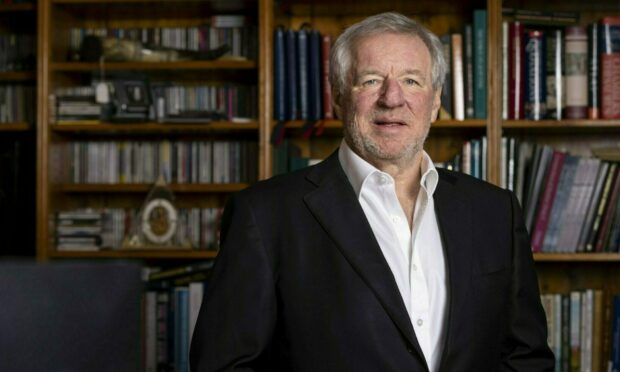A company’s most important responsibility is not to its shareholders or suppliers – it is to its employees.
This has always been the case, but looking after employees’ wellbeing is even more important after the Covid-19 pandemic.
Traditionally this responsibility has been carried out, first and foremost, by a firm’s human resources (HR) department.
‘Vital’ business functions
They manage the talent, agree the pay and benefits, arrange the training and development, and ensure workplace safety.
These are all vital functions, particularly when you consider that even the routine allocation of maternity/paternity leave significantly affects the lives of those concerned.
But the most challenging wellbeing issue in the modern workplace is mental health and that cannot be the responsibility of HR alone. It demands involvement by every department and every staff member in an integrated strategy.
Getting it right is not just a business imperative but a moral one.
Supporting a colleague can be as straightforward as an arm around a shoulder and the offer of a chat over a coffee.”
We have recently had a wake-up call with the publication of a survey showing two in five North Sea shift workers experience suicidal thoughts while on duty.
And offshore workers are up to 15 times more likely to die by suicide than their onshore counterparts.
Darren Sutherland, chairman of the North Sea chapter of the International Association of Drilling Contractors, has called for “top-down driven cultural change” and the creation of an industry mental health charter.
He is absolutely right. The survey evidence alone is a strong enough case for serious action on mental wellbeing in the workplace, but there is a strong business case too.
Research by Deloitte has shown poor mental health resulting in absenteeism, presenteeism and staff churn costs UK employers between £47 billion and £50bn.
It also found that supporting employees through screening, training, promoting awareness and targeted interventions can generate a return of almost £6 for every £1 invested.
Meanwhile, research by Aberdeen University has revealed that among US firms a unit increase in employee welfare lengthens the average time they remain quoted on the stock market by 35%.
Firms serious about mental health
This means that while getting mental wellbeing for employees right is a moral imperative, there is a sound business case for it as well.
Even before the pandemic, companies were taking it more seriously.
By the time of its retirement in 2020 the Time to Change Employer Pledge had been signed by more than 1,500 organisations, many of them household names.
It covered in excess of four million people, equivalent to more than 10% of the UK workforce.
The pledge represented a commitment to change the way we think and act about mental health in the workplace.
But the reality is the Covid-19 pandemic stalled progress and presented a raft of new challenges as a result of a period of unprecedented emotional stress.
Working from home suited many people but others suffered from a feeling of isolation.
An integrated wellbeing strategy is vital to meet these challenges, yet the Chartered Institute of Personnel and Development has reported that only 51% of HR professionals thought their companies had an integrated wellbeing strategy in place. We must do better.
Different approaches
There are small and cost effective measures companies can introduce to build their wellbeing strategy.
External resources such as Oliva, an employee mental wellbeing support platform for companies, are available to help firms.
But in my experience the most crucial requirement for wellbeing is the very valuable asset of emotional intelligence. In some cases, supporting a colleague can be as straightforward as an arm around a shoulder and the offer of a chat over a coffee.
A focus on prevention is also crucial. From physical exercise and good nutrition to getting involved in outdoor activities and volunteering will benefit everyone, as well as the local community.
One of the companies I work with runs a wellbeing guild, which has developed techniques to help remote workers connect with their colleagues virtually and to achieve work-life balance. Group activities are also available, such as yoga sessions, webinars and game nights.
We have mental health first aiders and run wellbeing sessions that include mental health, both to raise general awareness and also to help dispel any sense of stigma.
Wise old words
Throughout my career I’ve always considered people as the most vital asset of any firm.
I was pleased, therefore, to see consulting firm Deloitte mention employee wellbeing is now viewed as an essential element of a company’s environmental, social and governance business strategy.
My favourite investor and entrepreneur, Sir John Templeton, the father of value investing and a pioneer of Asian markets in the 1970s, observed “self-improvement comes mainly from trying to help others.” I couldn’t agree more.
Martin Gilbert is co-founder and former chief executive of Aberdeen Asset Management and chairman of AssetCo, Toscafund and Revolut.




Conversation